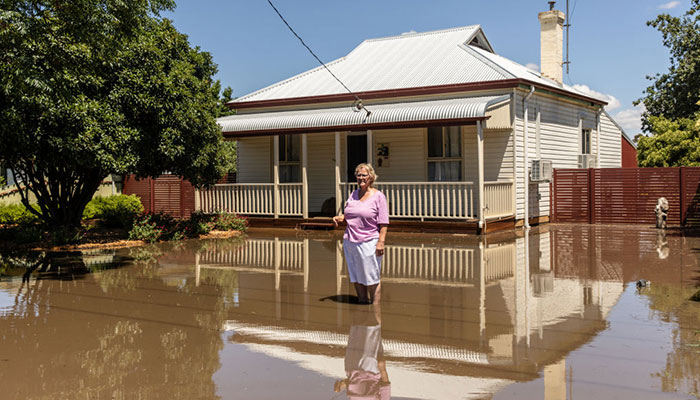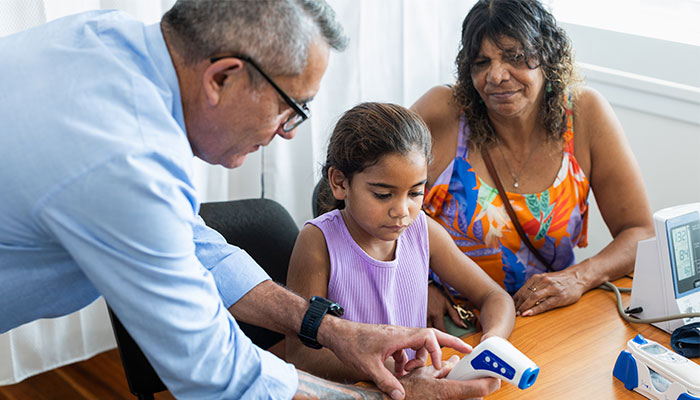Australia has a harsh record of fires, storms and floods. These events are becoming more frequent, increasing the likelihood that we, or people we know, will be affected – possibly more than once.

Natural disasters can impact all aspects of someone’s life, affecting family, community, health, living arrangements, finances and employment. It shakes our sense of control, and our expectations and belief in the safety and predictability of the world, undermining our confidence that we can protect our loved ones from harm.
Because disasters are often sudden and unexpected we may be unprepared, and this can also have an impact on our ability to respond effectively, both in the moment and during the recovery process.
Initially, people involved in disaster situations often report feeling energised. This is a survival response that enables us to take the actions necessary to manage threats and reduce risks.
Ways to get ready include talking to family or housemates about where you will go in the event of an emergency and agreeing on meeting points so you can find each other.
Afterwards, people react in different ways: feeling numb, sad, anxious, tearful, on edge, angry, confused, tense, exhausted, drained or any combination of these. Some people also have physical symptoms such as headaches, trouble sleeping or low energy, or cognitive problems such as difficulty concentrating or thinking clearly. Some people may develop depression, anxiety or post-traumatic stress disorder (PTSD), or resort to drugs or alcohol to try to cope.
However we react, it is important to know that not coping is not a sign of weakness and we can seek help and support to rebuild our resilience.
Preparing for natural disasters
The key to giving ourselves the best chance of coping lies in being well prepared. While there are regular reminders from emergency services and other government agencies in terms of protecting our lives and homes, we do tend not to appreciate the value of preparedness to our mental health.

Having a disaster kit for each member of the household, including pets, is an important first step. These kits should contain essential items such as food, water, medication, a change of clothes, a phone charger, a battery-powered radio, and important contact numbers. These practical actions can reduce our anxiety.
Other ways to get ready include talking to family or housemates about where you will go in the event of an emergency, agreeing on meeting points so you can find each other and making checklists of what you need to do to prepare your home or property if you need to evacuate.
Knowing we are ready also has the benefit of increasing our confidence in our ability to get through the disaster.
If disaster strikes again
All of us are vulnerable to distress if we are affected by disaster, but someone who has already been involved in a fire or flood may be more susceptible if a similar event happens.
If you have already gone through a natural disaster and are on the brink of another one, remember that, between these events, you will have developed psychological skills that can help you cope.
Some of these skills may have been taught by a therapist or counsellor, such as breathwork to calm anxiety or panic attacks, grounding, which helps us focus on the moment, or cognitive reframing, which helps us to shift our thinking about ourselves or our situations in more realistic or helpful directions. Practising these skills can help you cope with the new crisis.
- Who's hiring? Jobs analysis unveils in-demand workers
- Name-calling and swear words: the rules that stop pollies taking it too far
Having been through something similar before, you will also have practical experience from the last event and may also have learned from others. This is valuable knowledge that gives you the power to take back a measure of control in a difficult situation, potentially helping you to be more effective in preparing your home and family – and managing your response afterwards.
Tips for coping after a disaster
Keep to a routine Commit to maintaining a basic routine such as going to bed and getting up at the same time, preparing regular meals and ensuring you drink enough water. This not only gives your body the fuel it needs, but helps maintain some structure when everything else might feel like it is out of your control. Try to do the things you love, such as engaging in a sport or hobby, and maintain social connections. The Big 5 is a good place to start to learn about the types of activities that are beneficial to our mental health.
Give yourself time to recover You will need time to grieve losses and adjust to what has happened, so don’t try to push yourself too hard. Be compassionate to yourself and try to be realistic in your thinking.
Make a plan List the things you need to do. Review and revise this list every morning or evening and tick off completed items so you can see you are making progress.
Write it out Writing down your thoughts can feel as though you are taking them out of your head, which can reduce worry and rumination. Writing can also help process difficult emotions, and may also make it easier to talk about them.
Talk it out This could mean talking to a friend or family member about how you are feeling, or to your GP, a counsellor or a psychologist, who can provide practical strategies to help you cope.
Walk it out Activities such as going for a walk or run, spending time in nature, or meditation, can all be beneficial to managing emotions such as sadness, anger and frustration.
Lean on others Coping with adversity is easier if you are part of a group, whether that means friends, family, neighbours or a community group.
Watch for signs of distress in yourself and the people around you Problems sleeping, changes in energy levels and shifts in mood are all signs of distress, and they may continue for weeks after an incident. If someone is continuing to feel sad and tearful, isolated or on edge, or is not able to find pleasure in their usual activities, it could be helpful to talk to a mental health professional. Anyone experiencing thoughts of self-harm or suicide should seek urgent help.

Professor Nick Titov, pictured, is a Professor of Psychology in the School of Psychological Sciences at Macquarie University. He is Director of the University’s free digital mental health service, MindSpot. MindSpot has a library of free mental health resources, including Mental health and resilience after a disaster.



